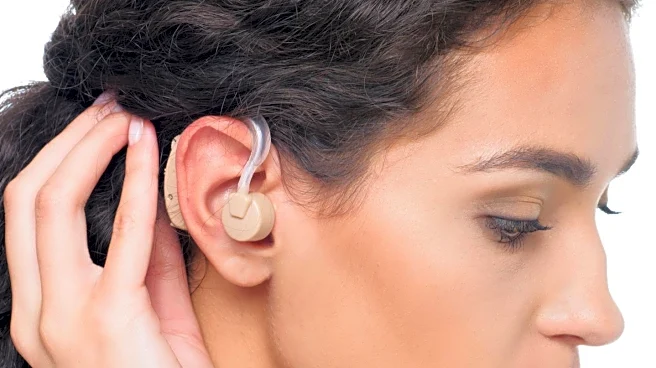What's Happening?
A recent study published in JAMA Neurology reveals that addressing hearing loss early can significantly reduce the risk of dementia. The research, involving 2,953 participants from the Framingham Heart study, found that adults with hearing loss who used hearing aids before age 70 had a 61% lower risk of developing dementia compared to those who did not use hearing devices. The study highlights the importance of early intervention in hearing loss as a preventive measure against dementia, emphasizing the need for increased awareness and use of hearing aids among those with hearing impairments.
Why It's Important?
The findings underscore the critical role of hearing health in cognitive function and dementia prevention. With age-related hearing loss identified as a risk factor for dementia, the study suggests that hearing aids can be a simple yet effective tool in reducing this risk. This has significant implications for public health strategies, potentially leading to increased advocacy for hearing aid accessibility and usage. The study also highlights the broader impact of hearing health on quality of life, as improved hearing can enhance social interactions and cognitive engagement.
What's Next?
The study may prompt healthcare providers to prioritize hearing assessments and interventions as part of routine care for older adults. There could be increased efforts to educate the public on the benefits of hearing aids and to reduce stigma associated with their use. Policymakers might consider initiatives to make hearing aids more affordable and accessible, particularly for those at risk of dementia. Further research could explore the long-term cognitive benefits of hearing aid use and its impact on dementia progression.
Beyond the Headlines
The study raises ethical considerations regarding healthcare access and the need to address disparities in hearing aid availability. It also highlights the importance of integrating hearing health into broader discussions on aging and cognitive decline. Culturally, the findings may influence perceptions of hearing aid use, encouraging more proactive approaches to hearing health among diverse communities.











